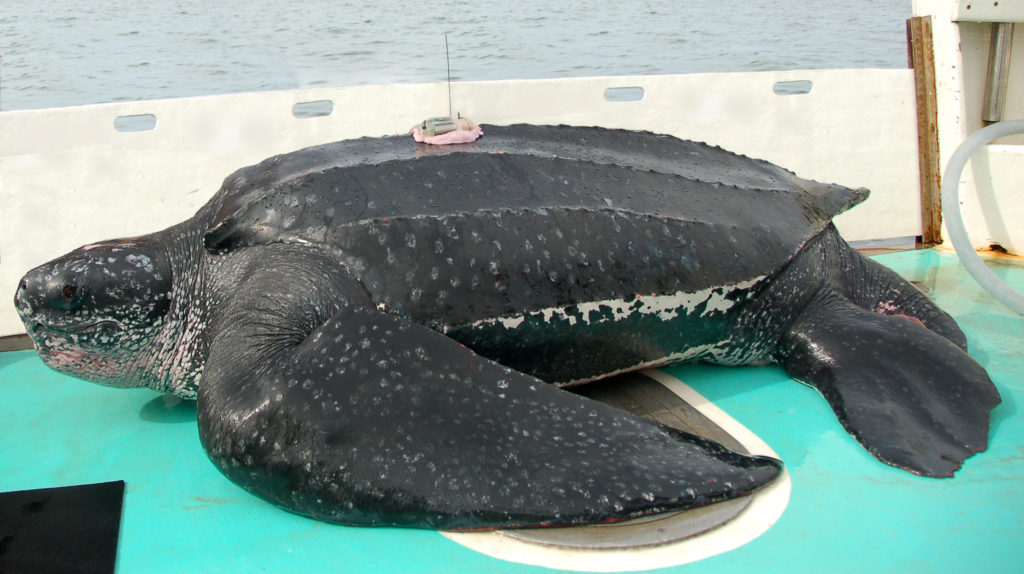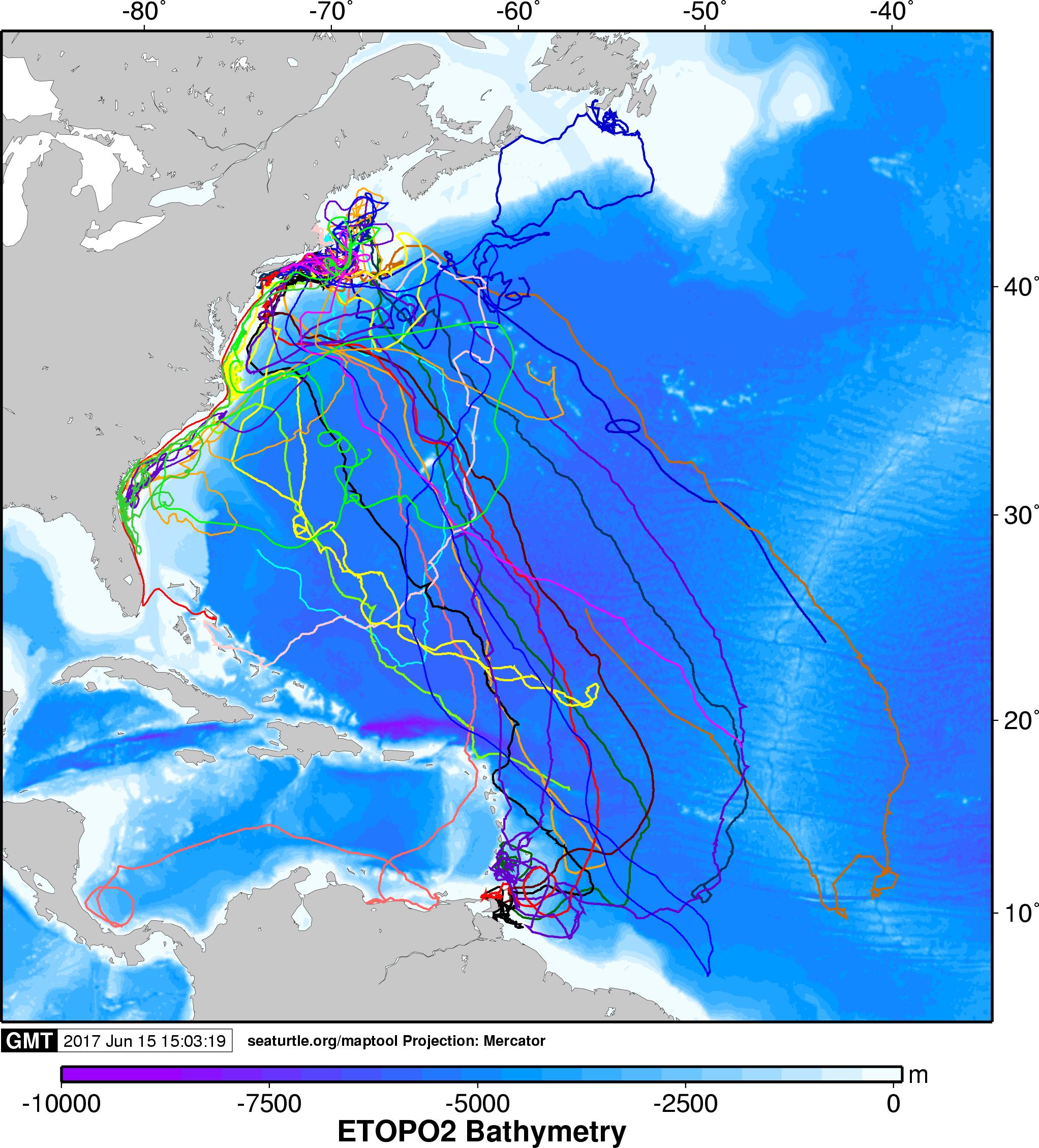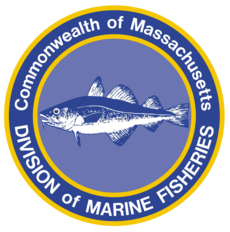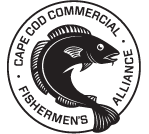Leatherback turtle behavior in North Atlantic ecoregions
Collaborators: M. Lutcavage, B. Galuardi, T. Miller, C. Innis, C. Merigo, B. Sharp, S. Landry, E. Burke, A. Myers, M. Dodge, M. Leach & G. Purmont

Male leatherback turtle with GPS-linked satellite tag. Photo by K. Dodge
We used GPS-linked satellite tags to study the movements, dive behavior, and environmental associations of leatherback sea turtles (Dermochelys coriacea) found in New England, USA, foraging grounds. Turtles were captured at sea off Massachusetts with a breakaway hoopnet and tracked for several months to over one year, with turtles traveling from temperate shelf habitat to breeding and over-wintering grounds in the Caribbean, Central America, and tropical oceanic habitats. Turtles modified their movements and dive behavior in oceanographically distinct ecoregions in the North Atlantic. In shelf habitats where environmental conditions were most dynamic, we found sea surface temperature and bathymetry to be the best predictors of leatherback "foraging" behavior (inferred from path sinuosity). Migrating turtles have remarkably consistent orientation behavior in North Atlantic subtropical gyre, suggesting a common compass sense.

Above: Reconstructed movement paths of 27 leatherback sea turtles tracked with satellite tags in the North Atlantic between 2007 and 2013. Below: Animation of satellite tagged leatherback turtle movements in the North Atlantic; red symbols indicate track end points (courtesy of Tim Lam / Large Pelagics Research Center)
Partners/Collaborators
This collaborative project was led by the Large Pelagics Research Center with scientists from the New England Aquarium, NOAA Northeast Fisheries Science Center, Center for Coastal Studies, Massachusetts Division of Marine Fisheries, and industry partners.
Related Links
- Large Pelagics Research Center
- Anderson Cabot Center for Ocean Life
- Center for Coastal Studies
- Mass DMF Protect Species
Leatherback work in the news!
- Leatherback orientation behavior in The Conversation
- Leatherback orientation behavior in The New York Times
- Leatherback orientation behavior in The Boston Globe
- Leatherback orientation behavior in The Cape Cod Times
- Leatherback tracking in The Boston Globe
- NOAA Fisheries feature story on leatherback tracking
- Leatherback tracking in Cape Cod Times
Research Papers
- Leatherback movements, dive behavior, and habitat in PLoS ONE
- Leatherback orientation behavior in Proceedings of the Royal Society B



